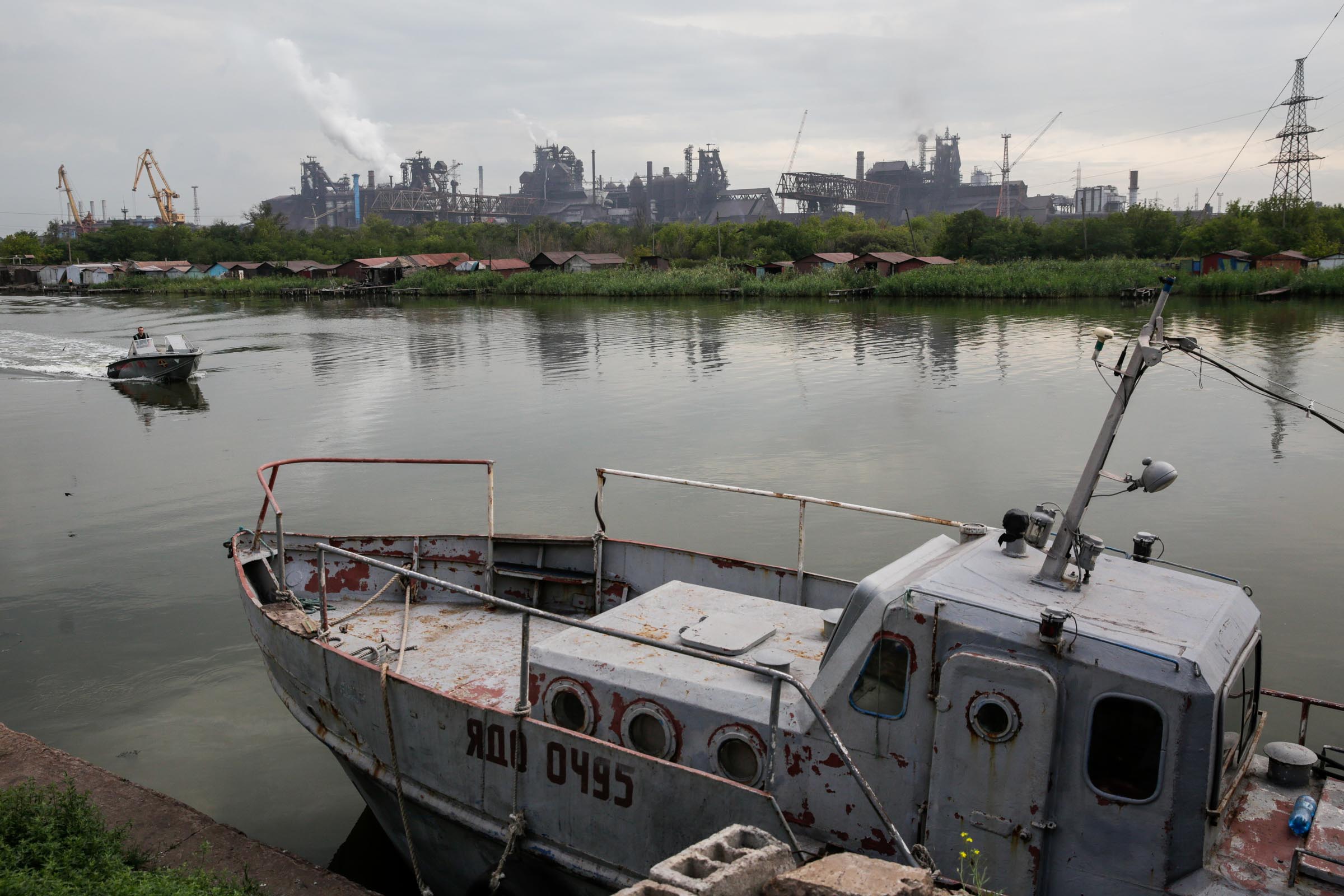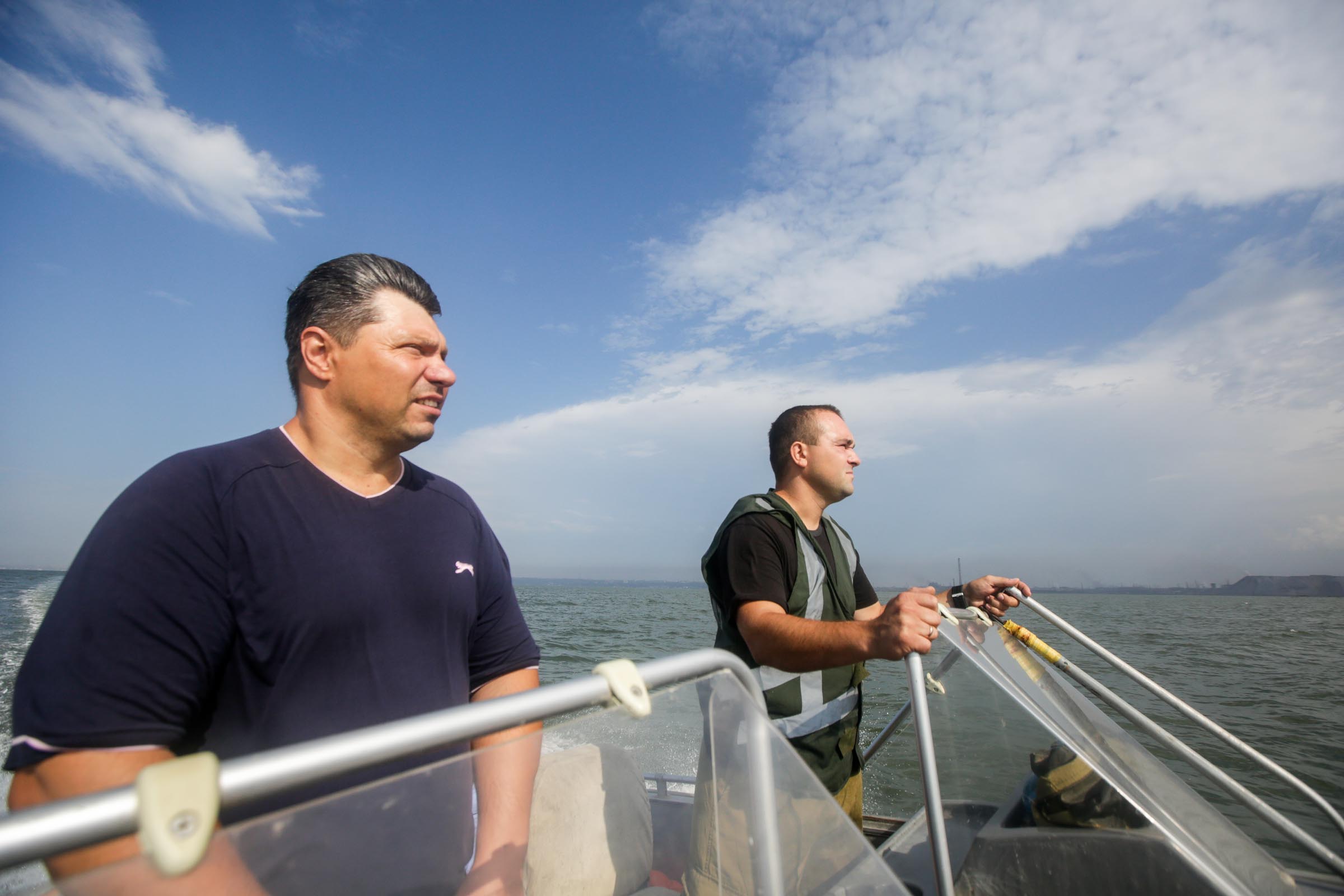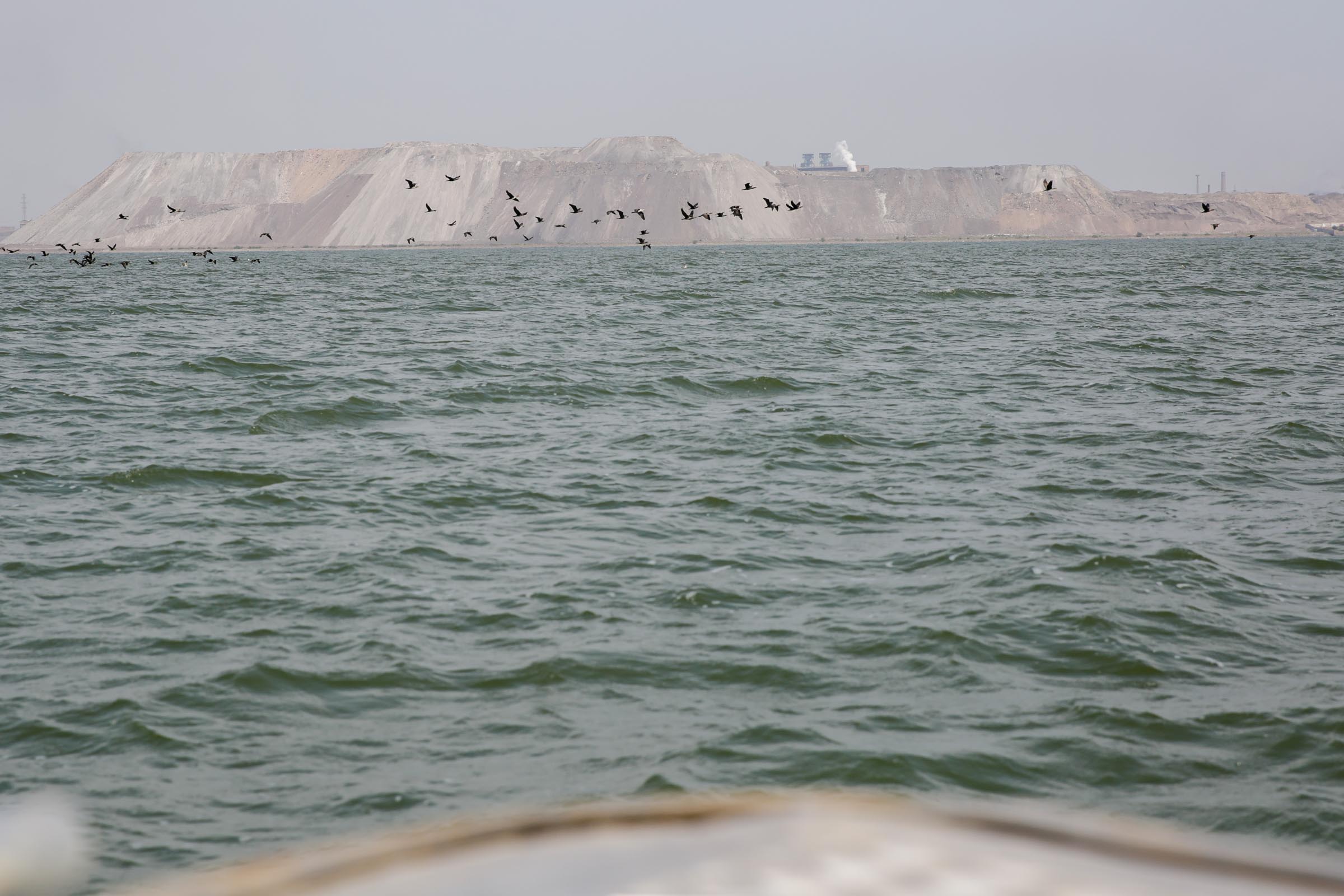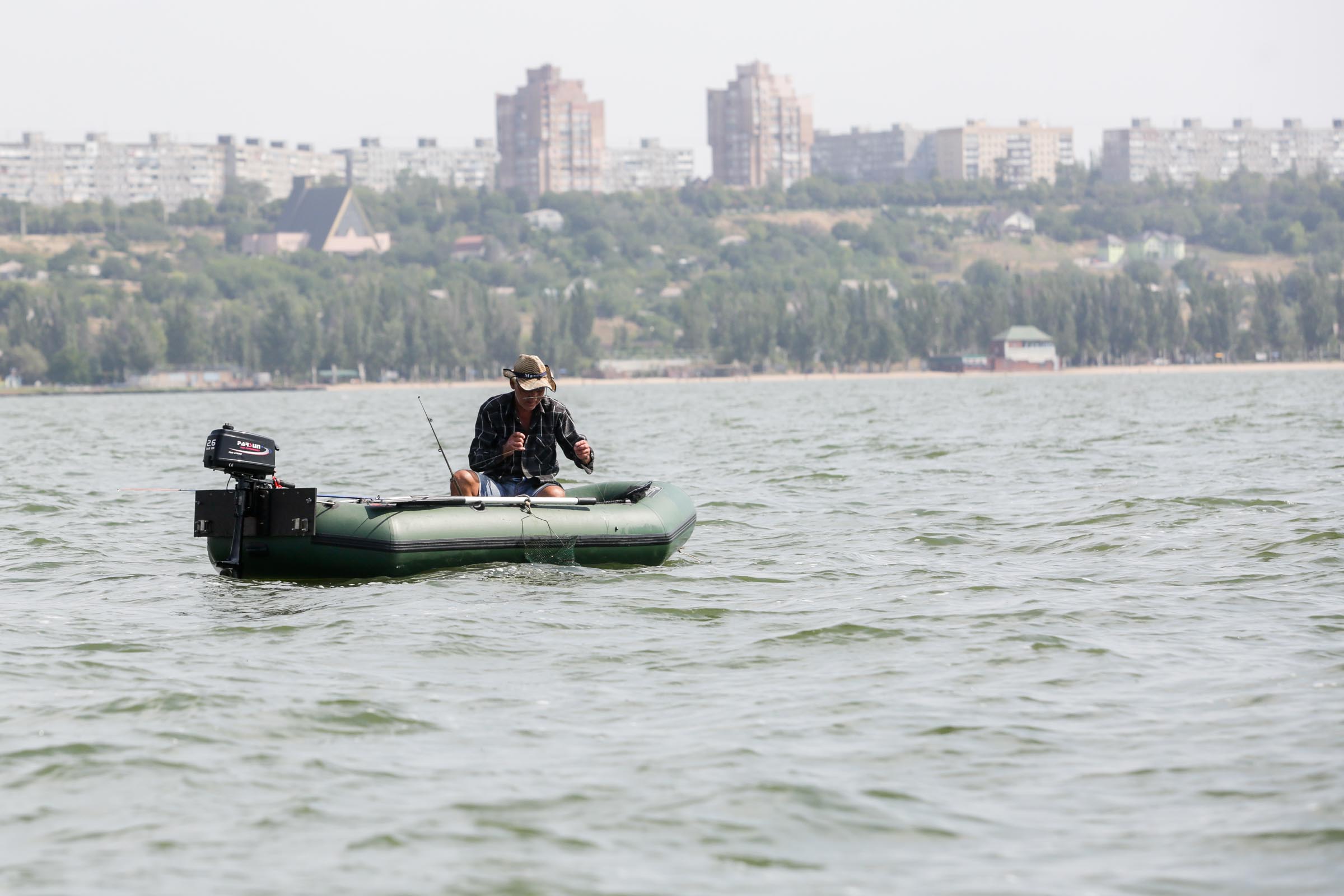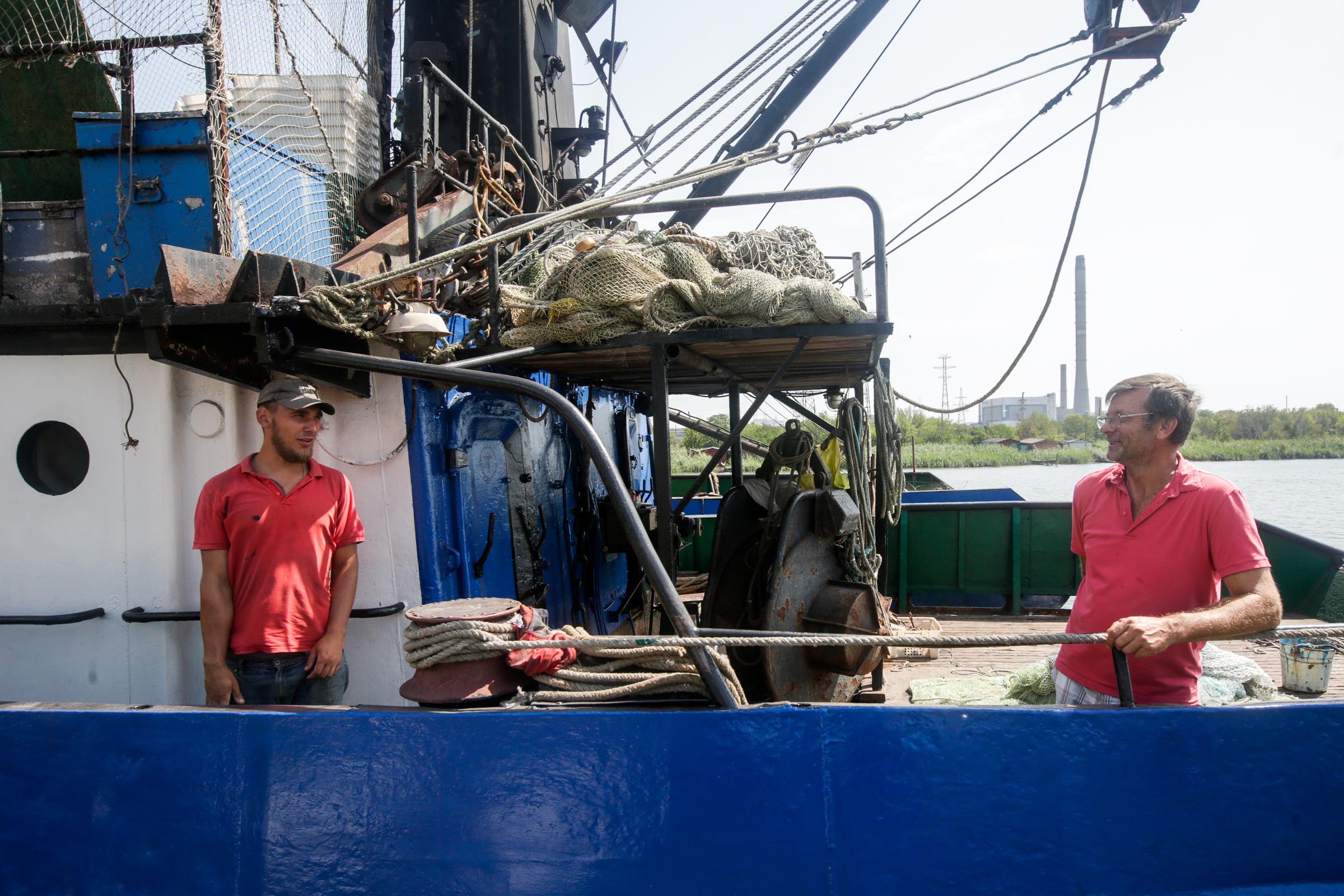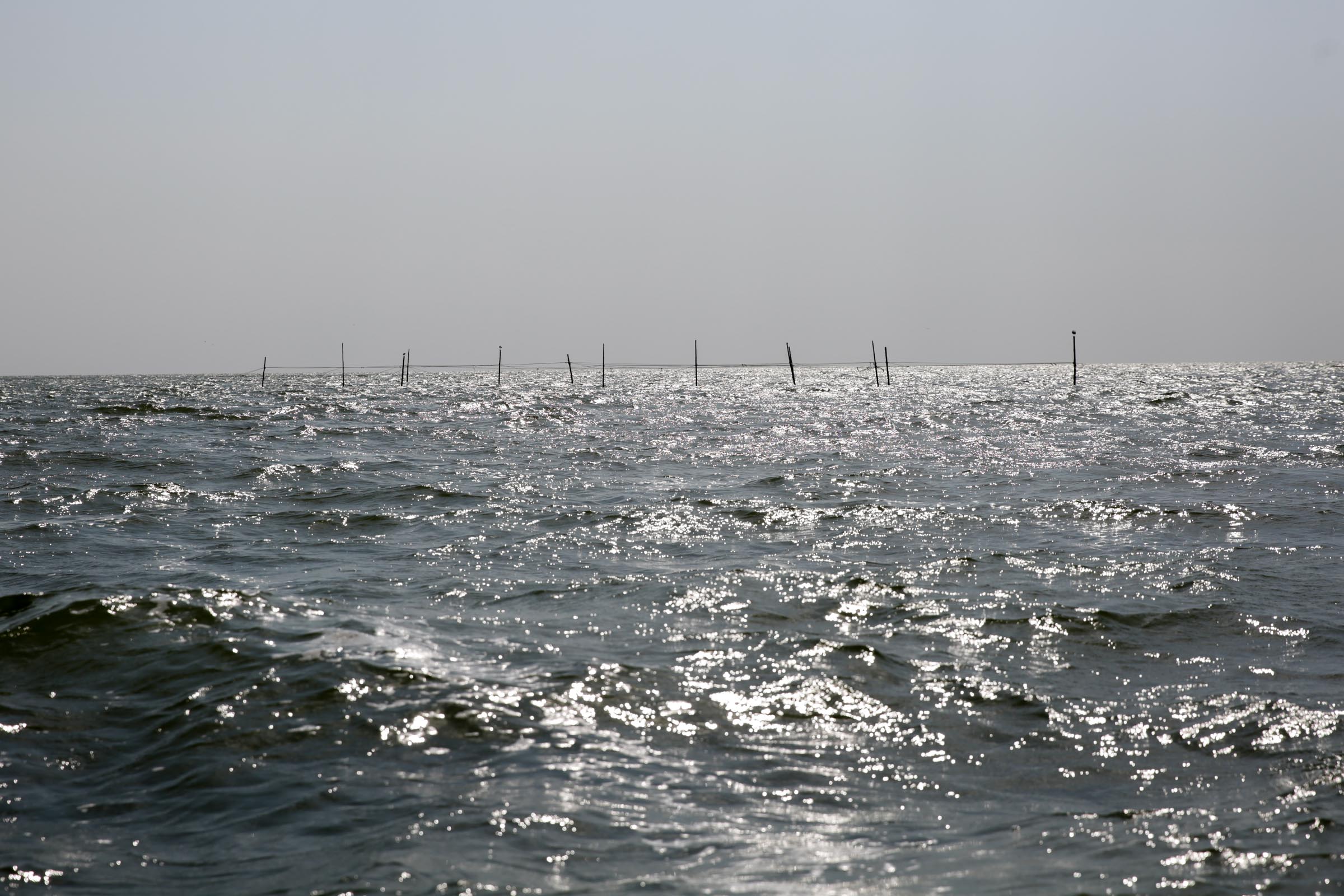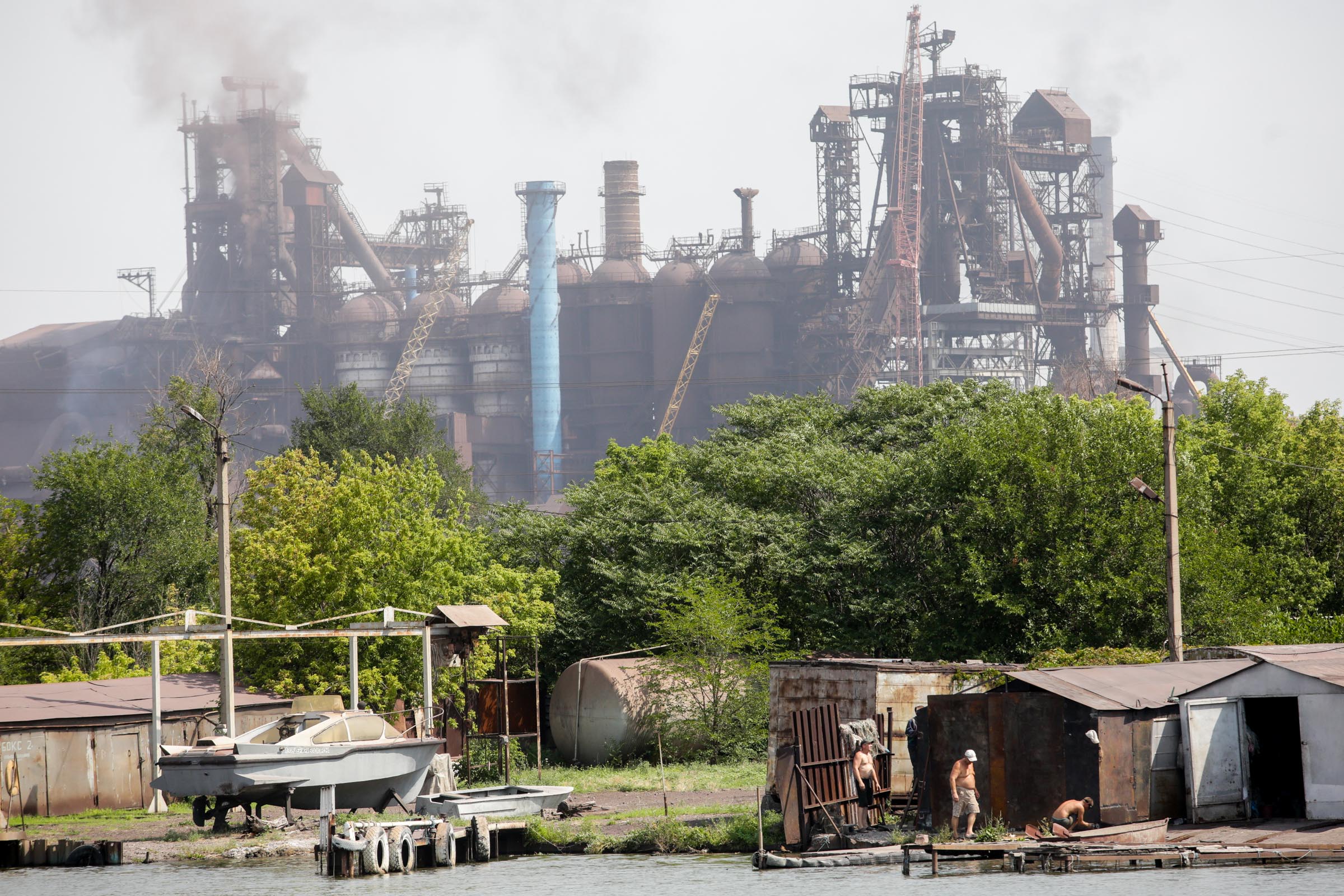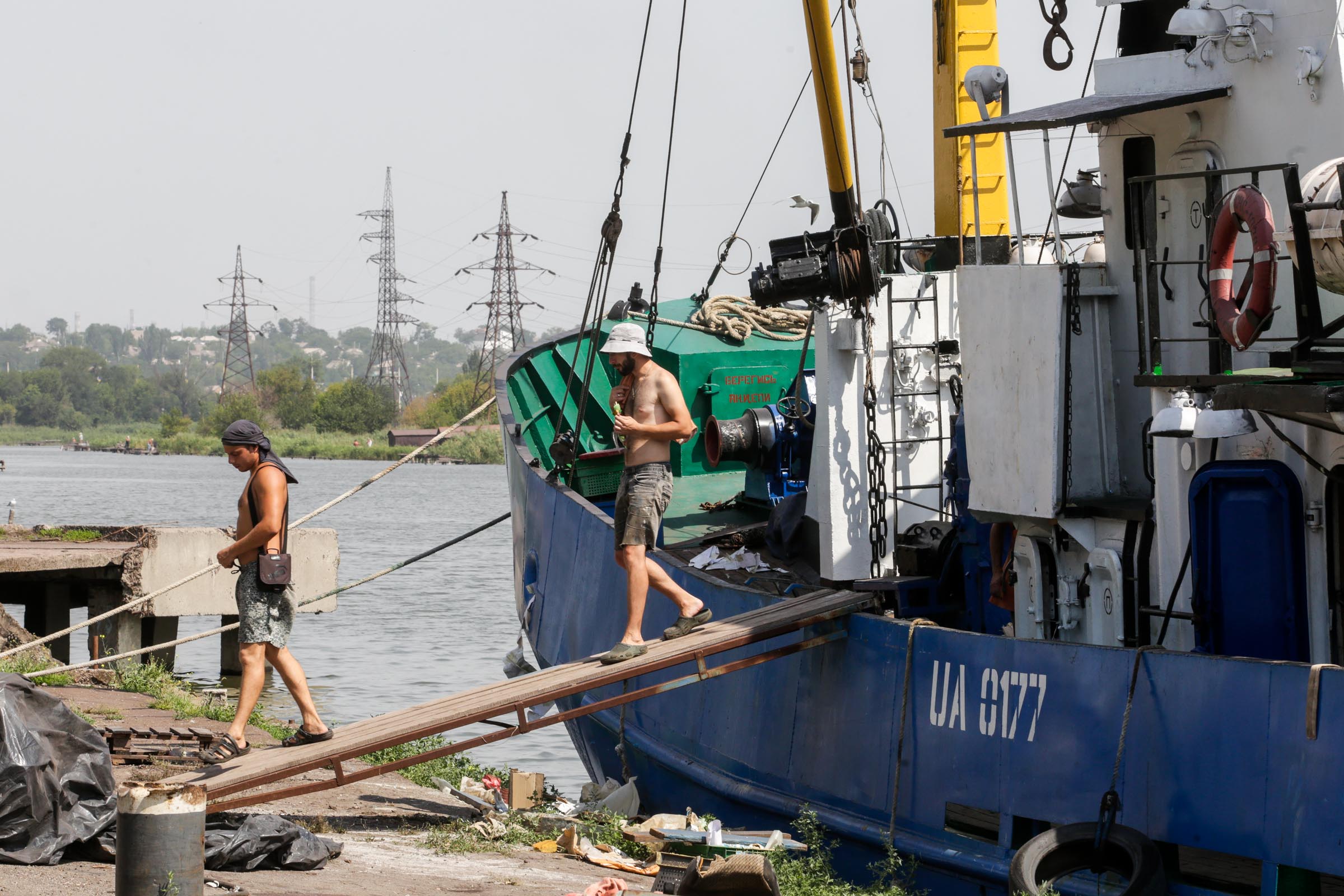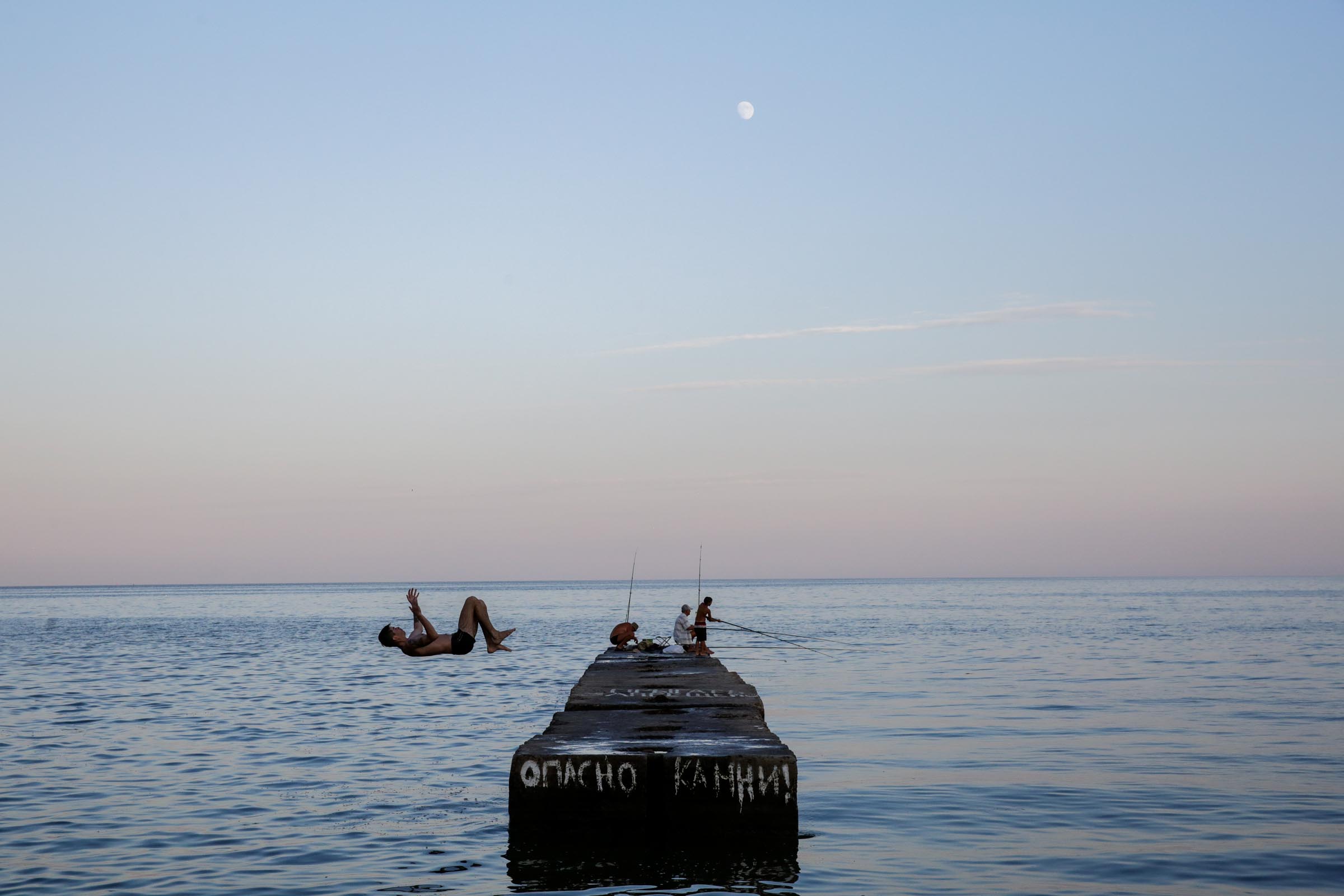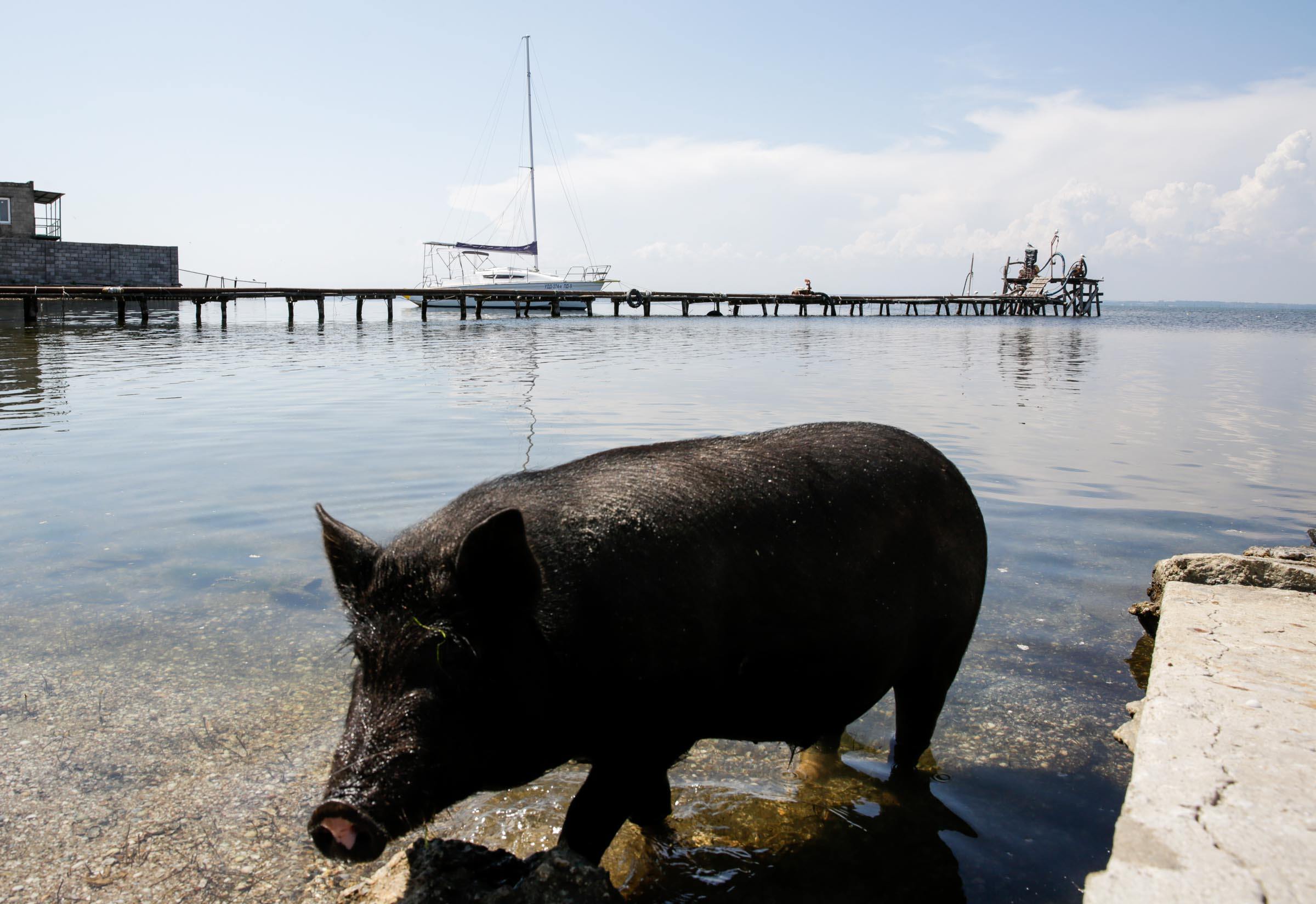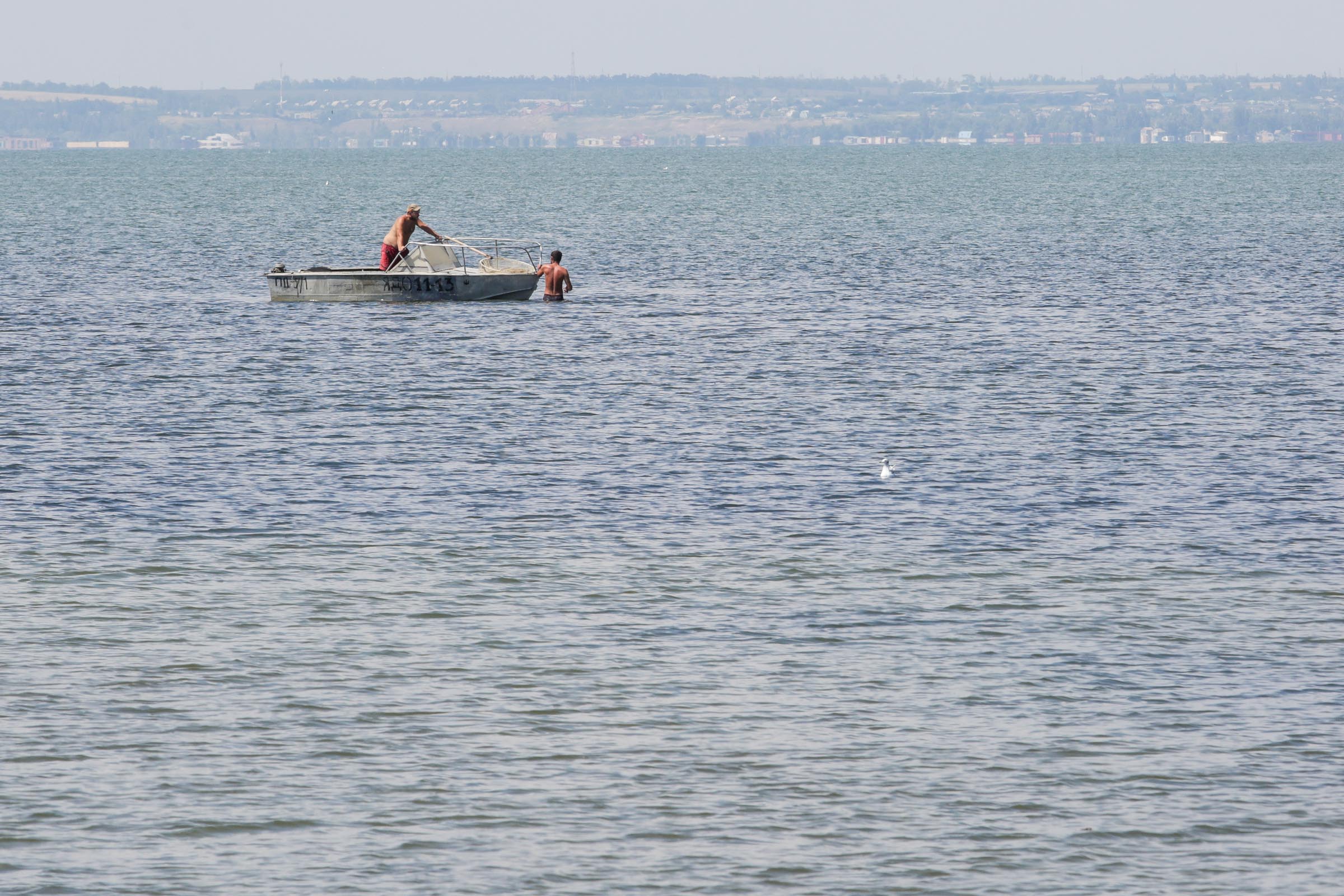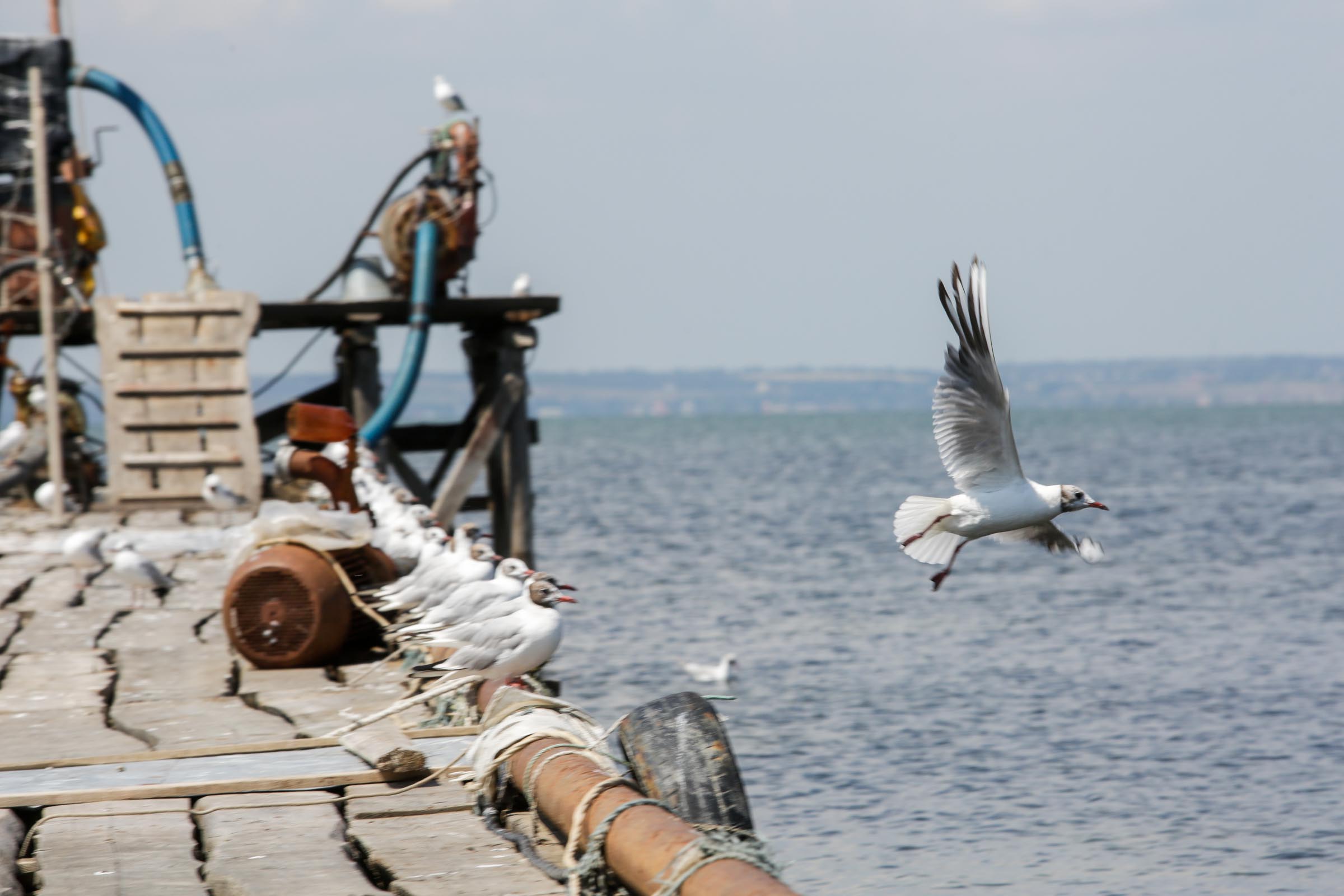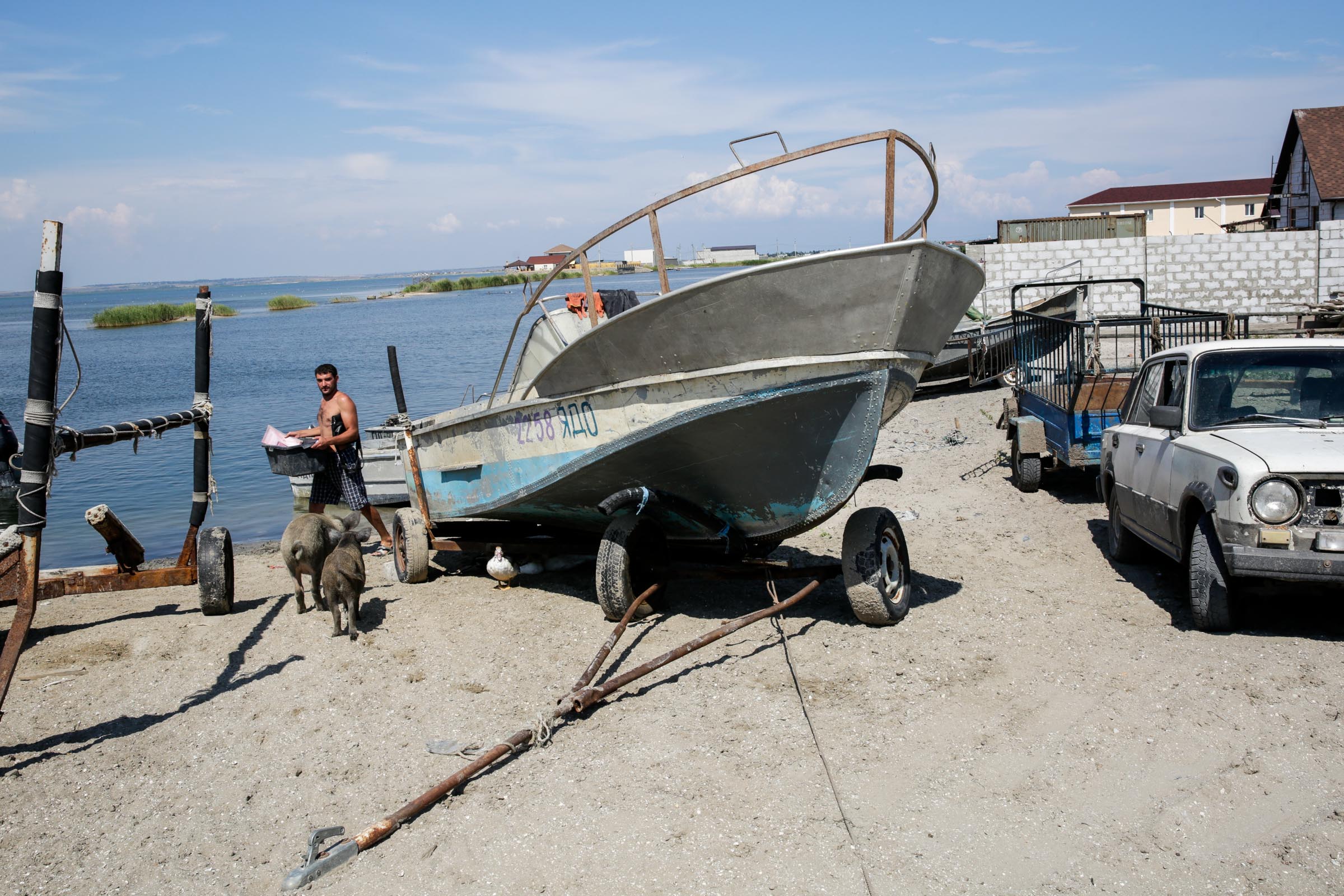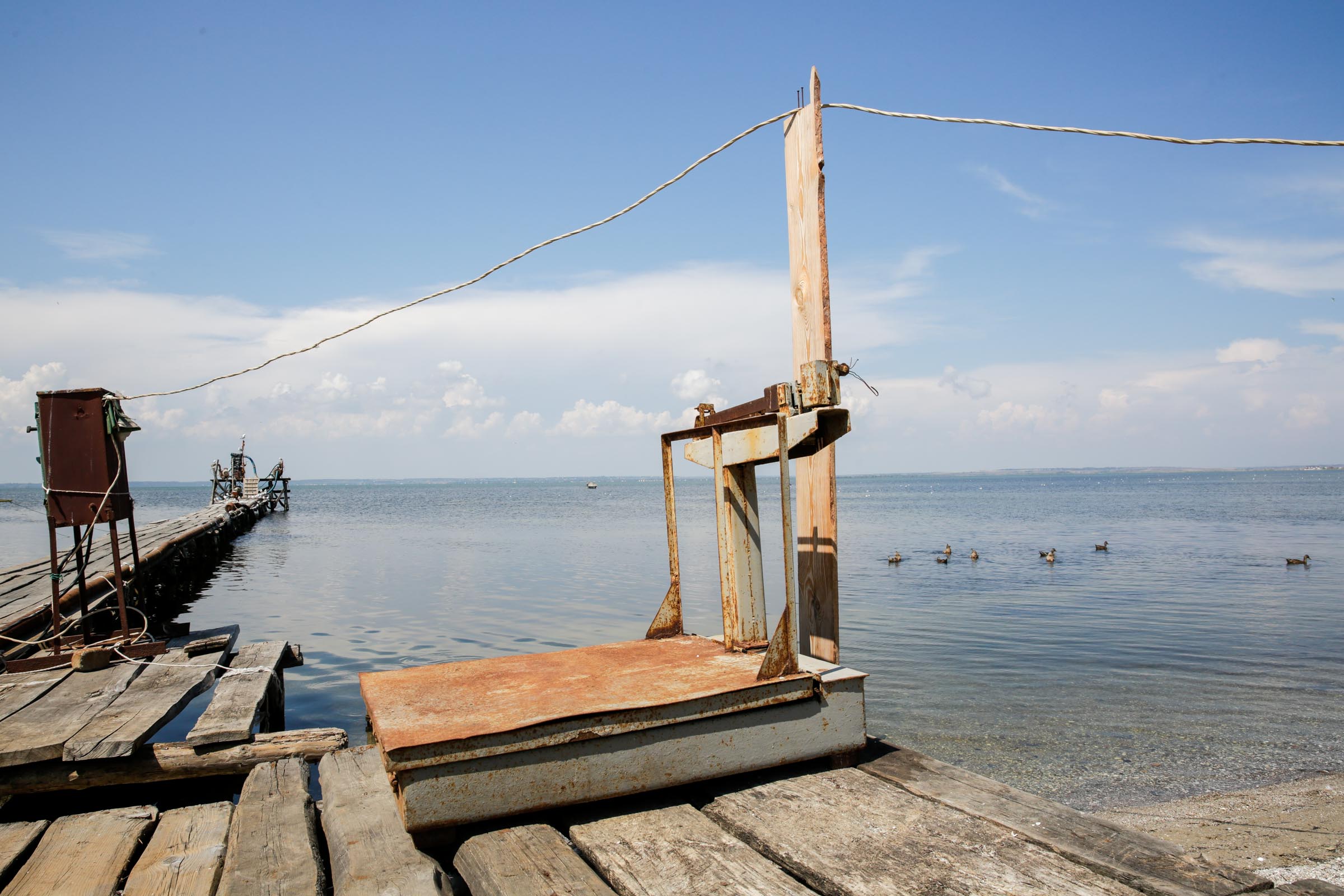MARIUPOL, Ukraine — With a new fishing season about to get under way in Azov Sea, it’s local fishermen who fear being caught — by the Russian Federal Security Service, the successor agency to the Soviet KGB that now rules these waters.
Tensions skyrocketed on March 25, after Ukrainian coast guard members detained a Ukrainian-registered fishing boat from Crimea for illegally sailing under the Russian flag in the Azov Sea and fish poaching. Ukraine also arrested the nine-member crew of the Nord ship.
As the Kremlin retaliates, Ukrainian fishermen are staying close to shore out of fear that the Russian FSB will abduct them next. The Kremlin’s agents have already exacted revenge by arresting a Ukrainian fishing boat and its crew in May and, since then, holding five Ukrainian fishermen in Russian-occupied Crimea.
“We’ve made a bet on who will be abducted and taken to Kerch next for inclusion in the prisoner exchange list with Russia,” joked Vasyl Dosan, a trawler captain who fled Shyrokyne, a fishermen’s village and resort town in Donetsk Oblast, some 800 kilometers southeast of Kyiv. Shyrokyne had 1,400 people before the war, but all have fled the Russian onslaught.
Fishermen also fear having their boats detained — as Russia has already done with more than 144 Ukrainian and foreign commercial vessels. The detentions last from several hours to up to three days, inflicting economic harm on shipping companies and the Ukrainian ports of Mariupol and Berdyansk.
The Ukrainian government says it can do nothing to prevent this, since Russia is, apparently, not violating any laws: In 2003, when Ukraine and Russia were still friends, the Ukrainian and Russian governments signed an agreement on cooperation and shared use of the Azov Sea and Kerch Strait.
Since 2014, Russia has invaded and occupied Crimea, launched the ongoing war in the Donbas that killed at least 10,000 people, and illegally constructed the Kerch Bridge.
But the agreement that defines the Azov Sea as common territorial waters of Ukraine and Russia is still in force. It gives Russia and Ukraine equal rights to base vessels anywhere in the sea and de facto erases the sea border between two states.
Ukraine and Russia share not only the Azov Sea, but also fish in it, with a common Russian-Ukrainian Fishery Commission gathering every year since the 2000s in order to set the two countries’ catch quotas and to decide which fishing gear can be used.
“The Security Service of Ukraine (SBU) and border guards met with us, the fishermen, in June, and warned not to go further than five kilometers from shore, as they can do nothing if the Russians arrest and kidnap us,” fisherman Volodymyr Cherepovskiy told the Kyiv Post on July 30. Cherepovskiy is the owner of several fishing boats from Berdyansk, a port city of 116,000 people on the coast of Azov Sea in Zaporizhzhya Oblast.
Fishermen in Mariupol say that even despite the war and new dangers, they have to continue fishing to make a living.
More than 200 private companies and more than 20,000 people are involved in the area fishing industry.
Roman Ledovskiy, the chief of the Azov Region State Fishery Inspectorate, said at least 48 industrial trawlers and 250 smaller fishing boats operate in the Azov Sea.
Every trawler has a crew of 7–15 fishermen, while the boats have a crew of two or three, Ledovskiy said.
In the coastal regions of Donetsk and Zaporizhzhya oblasts, where the average wage is Hr 8,000 ($296) a month, a fisherman can earn up to Hr 12,000 ($441) a month in a good season, Cherepovskiy said.
But if a fisherman can’t get to sea or catch enough fish, he can expect only the minimum wage of Hr 3,200 ($118) from the vessel owner.
The fishermen say they haven’t had a good season for a long time.
Stocks recover
The Kremlin’s annexation of Crimea and war in the Donbas, as well as Russia’s militarizing of the Azov Sea, has turned the tide on Ukraine’s fishing industry. While Shyrokyne was destroyed by war, other fishing villages like Sedove and Bezimene are now under Russian control.
To keep working, many local fishermen like Dosan were forced to move to nearby Mariupol, the industrial port city of more than 480,000 people, located 800 kilometers southeast of Kyiv.
Leonid Izergin, the director of the Berdyansk-based Institute of Fisheries and Marine Ecology, said there was a major drop in the catch in 2014, but it has since rebounded.
“Locals caught less than 20,000 tons in 2014, while earlier they could get more than 28,000 tons a year,” Izergin said. Since 2015, fish stocks have recovered, Izergin said. In 2017, the total Azov catch was 37,000 tons.
But the fishermen don’t trust the statistics.
There are fish in the sea, Valeriy Motora, the acting captain of the Mariupol Fish Port told the Kyiv Post, but due to pollution from heavy industry in Mariupol and the high salinity of the sea near the Ukrainian coast, they are mainly found near Crimean coasts of the Azov Sea and in the Kerch Strait — areas controlled by Russian FSB patrol vessels.
“The anchovy season starts in the Azov in October. It is the best, tastiest and most popular fish in our industry. From 2005 we mainly caught them near the Kerch Strait,” Motora said.
Perch and sturgeon have also migrated closer to the Russian coast of Azov, where the water is less salty. Only flatsnout goby and red-finned mullet can still be found closer to the Ukrainian coast, Motora said.
Despite the Kremlin’s war, the agreements on the shared use of the sea allowed Ukrainian fishermen to catch fish as close as five miles from the Russian coast, as well as near Crimea.
“The checks were strict, but (the FSB) always let us go if the documents were fine. If not, they just escorted the ships to the Ukrainian fishery patrols,” Motora said.
But everything changed after the arrest of the Nord, Motora added.
“We’ve got a lot of signals that as soon as we go back to sea, they will use any reason to arrest us and take us to Tymruk, Kerch or other Russian-controlled ports in the region,” Motora said.
Nord effect
The Nord crew held Russian passports, which Ukrainian authorities confiscated. The Nord’s captain, Volodymyr Horbenko, faces trial for allegedly violating Ukraine’s exit regime from Russian-occupied Crimea and poaching. After a month, two sailors managed to escape to Russia via Kharkiv, while the others remain in Ukrainian pre-trial detention centers. Horbenko has been released on bail.
Although he is still on trial, in June a Kherson court ruled Horbenko could return to Crimea on the condition that he visit investigators every week. But the fisherman refused to leave Ukraine until the end of his trial.
The arrest of the Nord infuriated Russia.
“We demand that (Ukraine) ceases mocking Russian citizens and grants them the opportunity to return home to their families without hindrance,” Russia’s Foreign Ministry said in April. “Our patience is not unlimited. We reserve the right to respond severely.”
The response was, indeed, swift. In May, Russia arrested the Ukrainian fishing boat YAMK‑0041 and its crew of five sailors for poaching. The Ukrainian fishermen are still detained in Crimea.
On July 16, Ukrainian Human Rights Ombudswoman Lyudmila Denisova sent a letter to Ukraine’s President Petro Poroshenko with a request to exchange the arrested crew of the Nord for the YAMK‑0041 sailors. Denisova said that the YAMK‑0041 captain is in a Simferopol pre-trial detention center. His crew have not been jailed but the FSB has forbidden them from leaving Crimea.
Azov Region State Fishery Inspectorate officers patrol Azov Sea near Mariupol on July 27. (Kostyantyn Chernichkin)
Kyiv Post staff writer Oksana Grytsenko contributed to this story.
